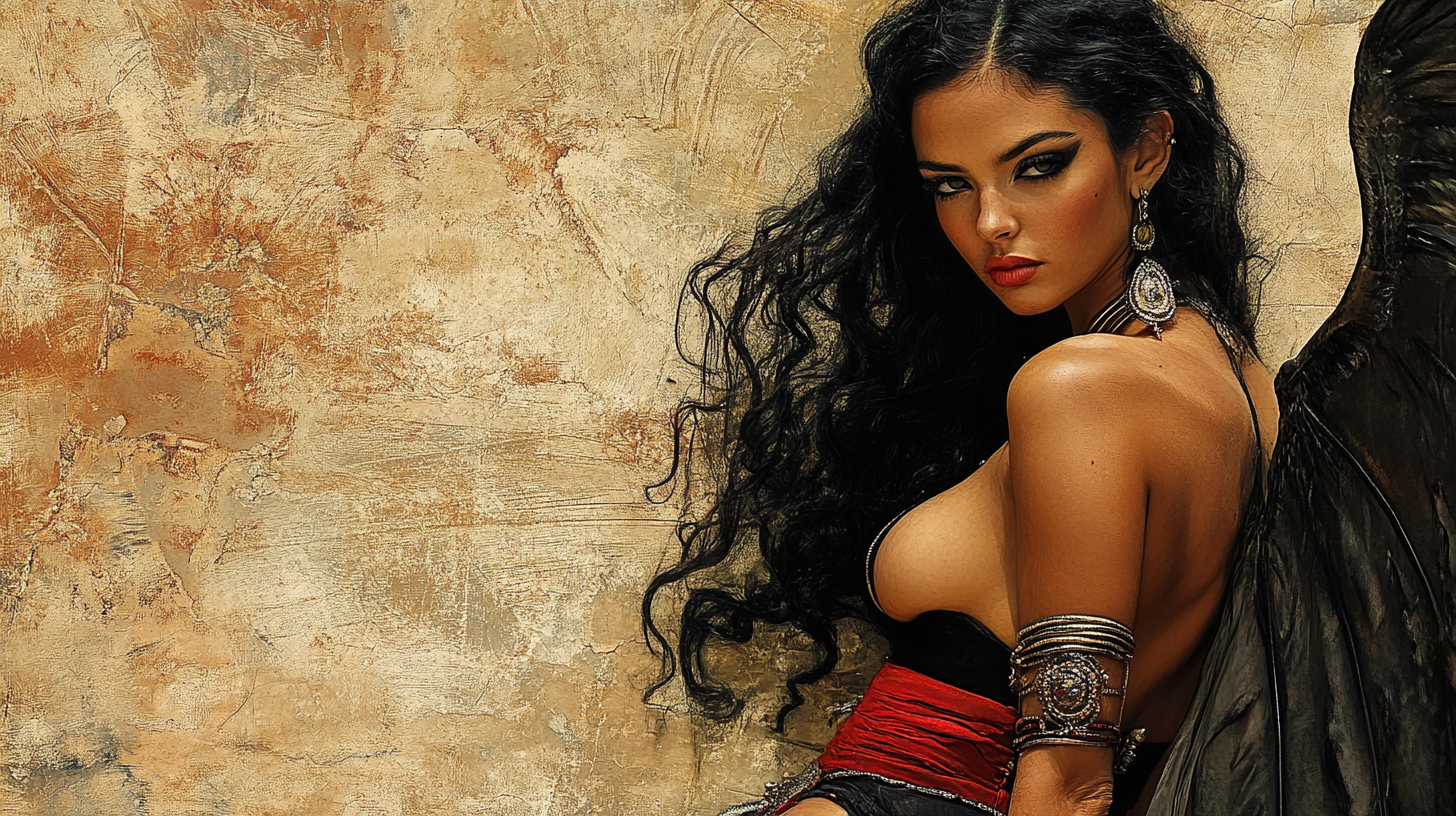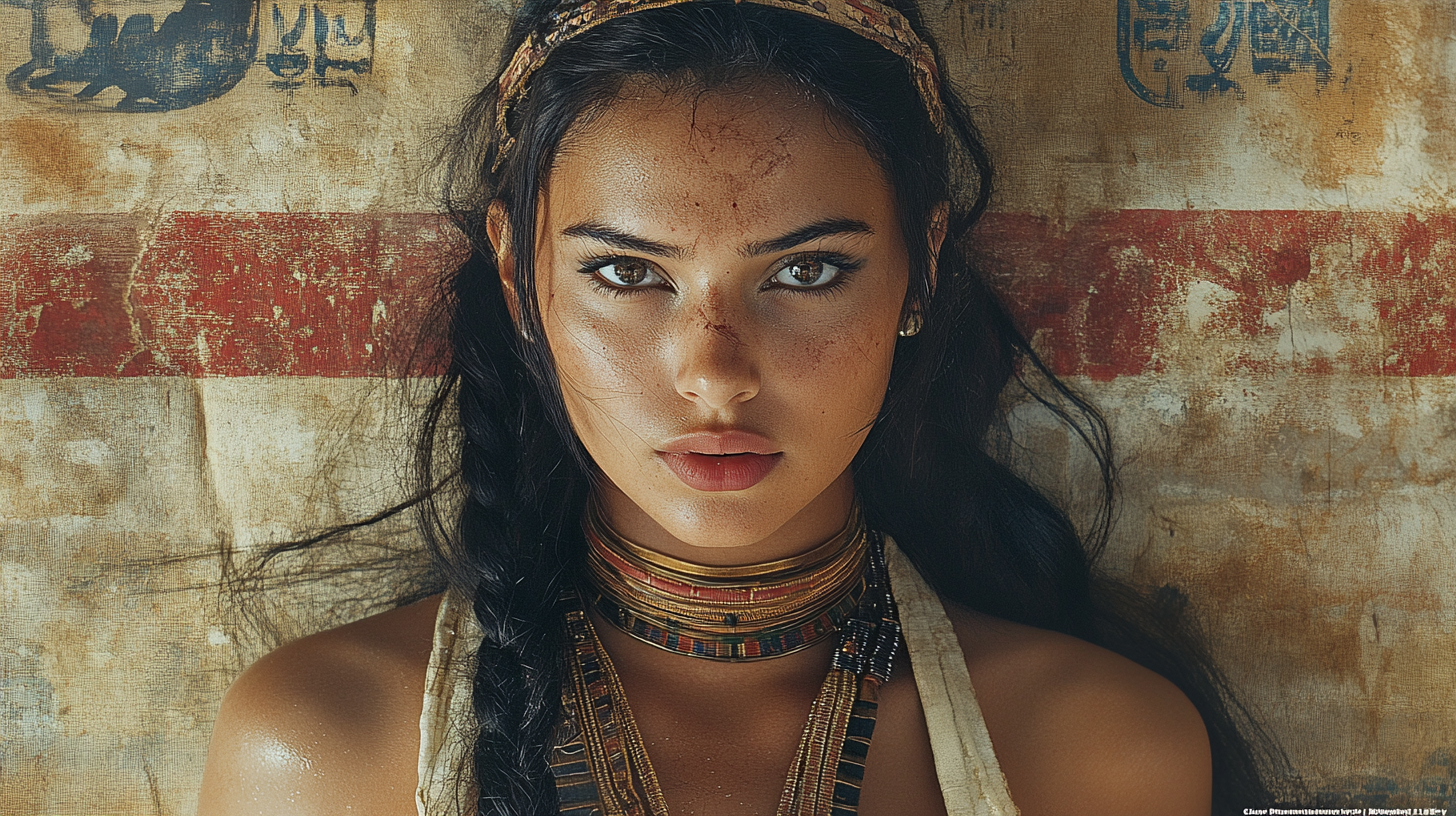The beauty of ancient Egyptian women has long been admired for its elegance, refinement, and unique connection to the culture's ideals of harmony and balance. Egyptian women were often depicted in art with a sense of grace, poise, and sophistication, reflecting the society's deep appreciation for both physical and spiritual beauty.
One of the most iconic aspects of Egyptian beauty was the emphasis on cosmetics. Ancient Egyptian women were known for their elaborate use of makeup, particularly kohl, a black eyeliner made from ground minerals. They applied this around their eyes to create the characteristic almond-shaped look, believed to enhance their appearance and protect their eyes from the harsh sun. In addition to kohl, women used natural pigments like red ochre for lip color and cheeks, enhancing their features in a way that also had religious and cultural significance, as beauty was often linked to divinity.
Hair was another important aspect of beauty. Women styled their hair in intricate braids and adorned it with jewelry, beads, and golden accessories. Wigs made of human hair or plant fibers were also popular among noble women, worn on special occasions to enhance their elegance. Cleopatra, one of Egypt’s most famous queens, remains a symbol of Egyptian beauty with her legendary allure and her carefully crafted image.
Skincare was crucial in ancient Egypt, with women using oils and creams to maintain smooth, radiant skin. They created lotions from natural ingredients like almond oil, honey, and milk, which not only kept their skin moisturized but also had anti-aging properties.
Jewelry and fashion were also essential to their expression of beauty. Gold, turquoise, and lapis lazuli adorned their necklaces, earrings, and bracelets, with each piece carrying symbolic meaning. Clothing was often made from fine linen, with women wearing light, draped garments that allowed freedom of movement while emphasizing their natural form.
Beyond physical appearance, beauty in ancient Egypt was also associated with balance, grace, and harmony, values deeply rooted in their philosophy and religious beliefs. Women's beauty was seen as a reflection of the divine, with goddesses like Hathor and Isis embodying the epitome of femininity, fertility, and love.
Ancient Egyptian women’s beauty, therefore, was not just about outward appearance, but a holistic expression of the culture’s reverence for balance, health, and the connection between body and spirit.


